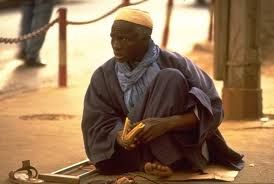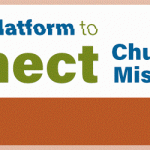 Earlier this week, I had to leave a meeting early. After I left, I understand there was a discussion about the relevancy of unreached people group thinking. Unfortunately, I didn’t get to participate in the discussion. Here’s my chance to make up time. :-) Is your agency or church still concerned with unreached peoples, or do you think the concept is no longer relevant? Here’s my thinking on the matter (below). The cool thing is — you can write your own opinion in the comment box below mine. If I disagree, I’ll just delete your comment. (I’m kidding.) No seriously… you can respond. Tell us what you think:
Earlier this week, I had to leave a meeting early. After I left, I understand there was a discussion about the relevancy of unreached people group thinking. Unfortunately, I didn’t get to participate in the discussion. Here’s my chance to make up time. :-) Is your agency or church still concerned with unreached peoples, or do you think the concept is no longer relevant? Here’s my thinking on the matter (below). The cool thing is — you can write your own opinion in the comment box below mine. If I disagree, I’ll just delete your comment. (I’m kidding.) No seriously… you can respond. Tell us what you think:
Regarding unreached peoples and unreached people group thinking:
My take on all this people group thinking is that it’s largely a mobilization tool. I tell people… imagine you’re trying to recruit volunteers to water the trees and plants in the mulched beds at Emerald Hills. We could describe the ones close to the building that get lots of water (if we had water sprinklers, that is). And we would say to the volunteers, “The problem is, there are many trees too far from the building, too far from the sprinkler system. These are the trees for which we really need volunteers.” Now… having said that… when the volunteers come, we’re still going to hop in the golf cart, drive them past a batch of mulched beds, and even get out of the golf cart to feel the mulch. Once we’ve felt the mulch, we can make a final decision about which flower beds we’d like them to water. But talking about the concept of beds *close* to the sprinkler system and beds far away is a useful tool to help prospective volunteers understand why they’re needed. Otherwise, the automatic sprinkler system would take care of all the watering.
[read more of Doug’s thinking on unreached peoples at this special expanded BackPage article page:
It’s not unlike Nehemiah 3, where we get the sense that Nehemiah had assigned certain parts of the wall-rebuilding to certain families. We note that many of the most important “public” sections (like the Fish Gate or such-and-such a fountain) were embraced by particular clans. Only when those clans accepted responsibility for that public area would it be truly repaired effectively. Why? Because nobody lived there, building their house as a lean-to against those walls. So — those walls were “unreached” walls; someone had to accept responsibility for them.
Does any of that make sense?
What’s your response?
To comment or inquire about this item, browse to…












Recent Comments